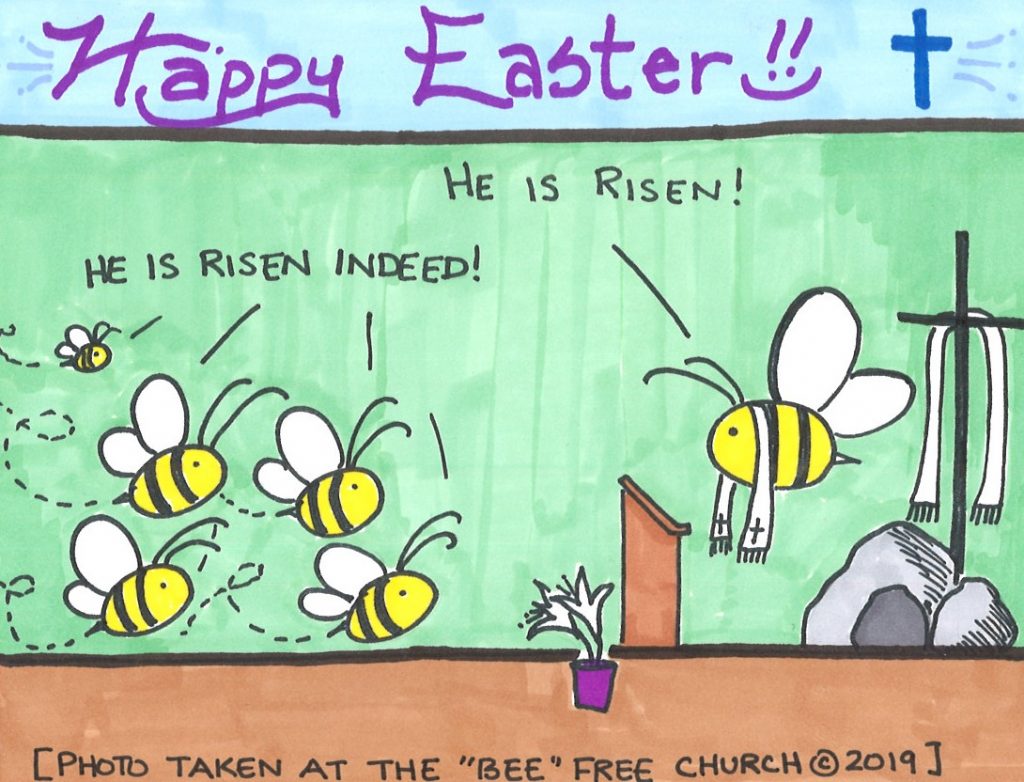
Today, based on John 20:1-23, Pastor Choi conveys the Easter message of the Risen Christ. They are: 1. Stop crying, for I am with you. 2. Peace be unto you. 3. Receive the Holy Spirit.
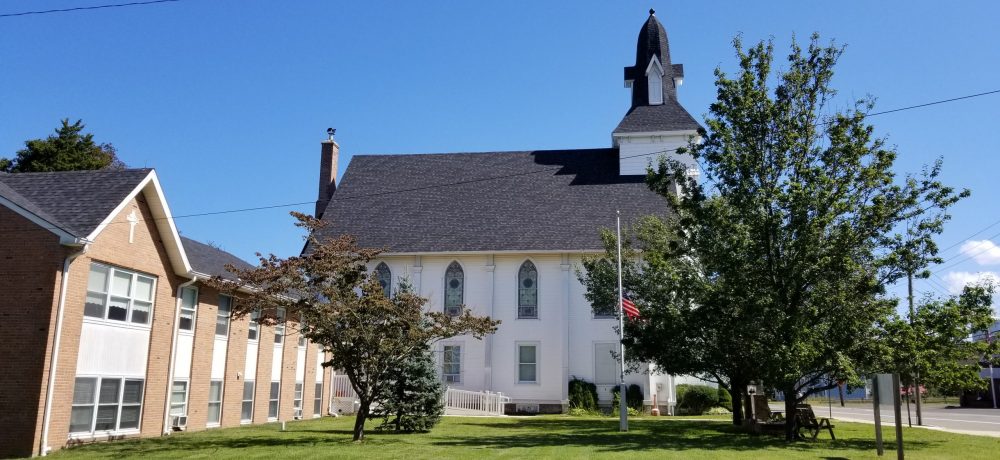

Today, based on John 20:1-23, Pastor Choi conveys the Easter message of the Risen Christ. They are: 1. Stop crying, for I am with you. 2. Peace be unto you. 3. Receive the Holy Spirit.

Two thousand years ago, Jesus rode into Jerusalem on a donkey’s back. It was a fulfillment of prophecy on how the Messiah would come to His people by prophet Zachariah about 520 B.C. The same Christ still comes, as a humble King and Lord, into the believer’s heart.
Text: Matthew 26:36-41
Today Pastor Choi talks about three lessons from Jesus’ prayer in the Garden of Gethsemane: 1. In the throes of stress, pray more and ask for prayer support. 2. Pray for an hour because God knows you can do it. 3. Pray so that you may not enter into temptation.
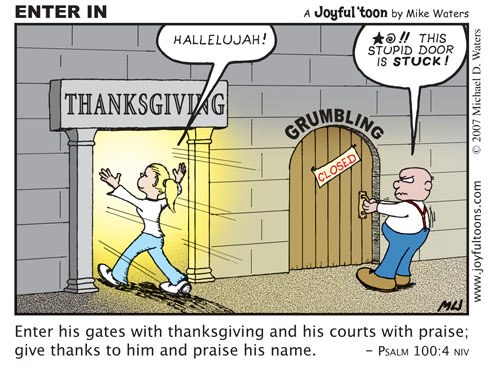
Today Pastor Choi talks about the importance of thanksgiving in worship: both in Heaven and on earth. He explains what’s going on in heavenly worship and ends his sermon with the importance of thanksgiving in the believer’s life, worship, and prayer.

Today Pastor Choi talks about Manna the heavenly food from God for God’s people. The sermon explains the origin of manna, how it was provided, and the ultimate goal God had in mind for His people: to understand that they cannot live by bread alone but by every word that proceeds from the mouth of God.

Today Pastor Choi talks about the importance of forgiving each other even up to 490 times! The sermon points out the problem of the unforgiving servant: Ungrateful, unmerciful, and unwise. The pastor exhorts the congregation to forgive by being grateful, merciful, and act with eternal perspective in mind, because our eternal destination depends on our forgiveness of those who trespass against us.
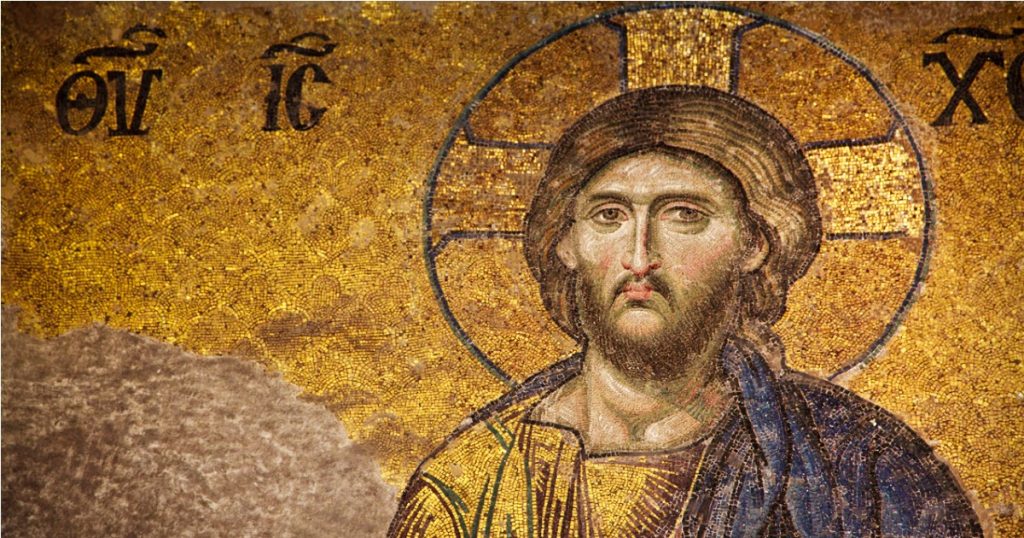
Today Pastor Choi talks about the foundation of Christian faith and practice: Jesus the Messiah and the Son of the Living God. He explains A-B-C-D’s in faith in Christ: Acknowledge-Believe-Confess-Do.
Today Pastor Choi talks about things that strike us on a societal level and make us shocked and puzzled. Expounding on Jesus’ call to repent in Luke 13:1-5, he shares three lessons for us to remember: 1. Suffering is no sure determiner of guilt. 2. Repentance is required of all without reference to accidents of life. 3. Time to repent is Now. Time is short. He exhorts God’s people to pray for our nation as Abraham did on behalf of Sodom.

In his sermon today (read by Sarah Choi), Pastor Choi talks about joy, particularly true joy that lasts eternally. There’s only One who can give us true joy–the LORD God. Pastor Choi also talks about two kinds of joy: worldly joy and godly joy. He finally talks about three ways to obtain and abide in true joy: believing in the Name of Jesus, pursuing God not joy itself, and experiencing the living God in life.

Today Pastor Choi talks about joy in God’s heart in Heaven. When one lost soul comes back home, God is delighted. His joy over one repentant soul is greater than that over 99 righteous people who don’t need to repent.

Today Pastor Choi talks about Shalom (Peace) with God through Christ. Christ and Christ alone brings us back to God through His redemption of our sins. When we obtain Peace with God through Jesus, we can also obtain Shalom in all other areas of life.

Text: Luke 4:1-13
Today Pastor Choi talks about Jesus’ temptation in the wilderness. He points out that we too experience temptations in our lives such as bread alone, worship other gods, and pride. Pastor Choi also presents three ways to ward off temptations.

Today, Sarah Choi, guest speaker expands on the topic of Shalom – peace with God and peace in every part of our lives. She uses the text of Jeremiah 17:5-8 as an illustration of Shalom.

Today Pastor Choi talks about three reasons why God created His children. For worship, for love, and for good works. When God’s people do all three, they will find fulfillment and satisfaction in their lives while they glorify the Lord.

Today Pastor Choi designates 2019 to be the year of Shalom. In his message, he explains the meaning of Shalom in the Bible, Shalom in all respects in spirit, soul, and body (in that order), and exhorts the congregation to pursue God’s will for His children–Shalom—throughout this year.

Tonight Pastor Choi shares one of his deepest concerns for the families in America: the lack of forgiveness. He then explains the root cause of unforgiving spirit and how to forgive one another in the name of Jesus.
Text: John 1:1-2, 14, 10:22-39
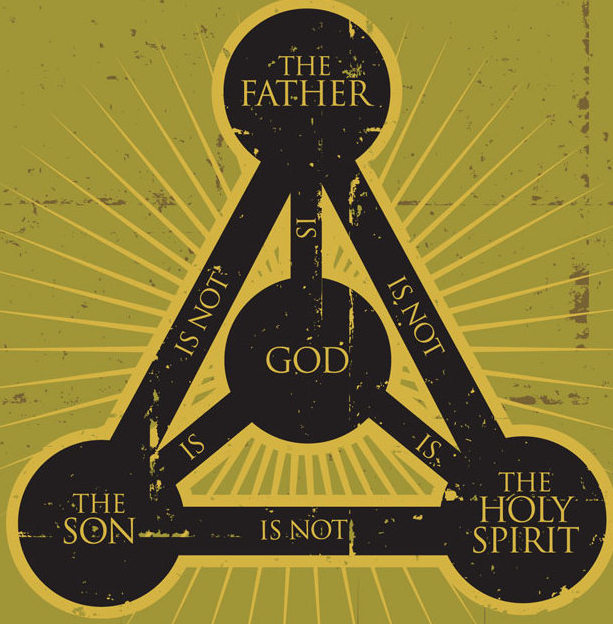
Today Pastor Choi delivers a sermon on the Trinity. After telling the congregation why he chose this sermon topic during the Advent season, he explains the doctrine on the Trinity. He points out that the Son of God, being equal to God, came down in human form to save us from our sins.
Text: Hebrews 2:18, 4:14-16

Today Pastor Choi talks about Jesus’ birth known to us as incarnation (literal meaning, into flesh). Jesus was incarnated God. He was the God-man. He was equal to God yet He came in human form to save us from our sins.
Text: Luke 1:46-56
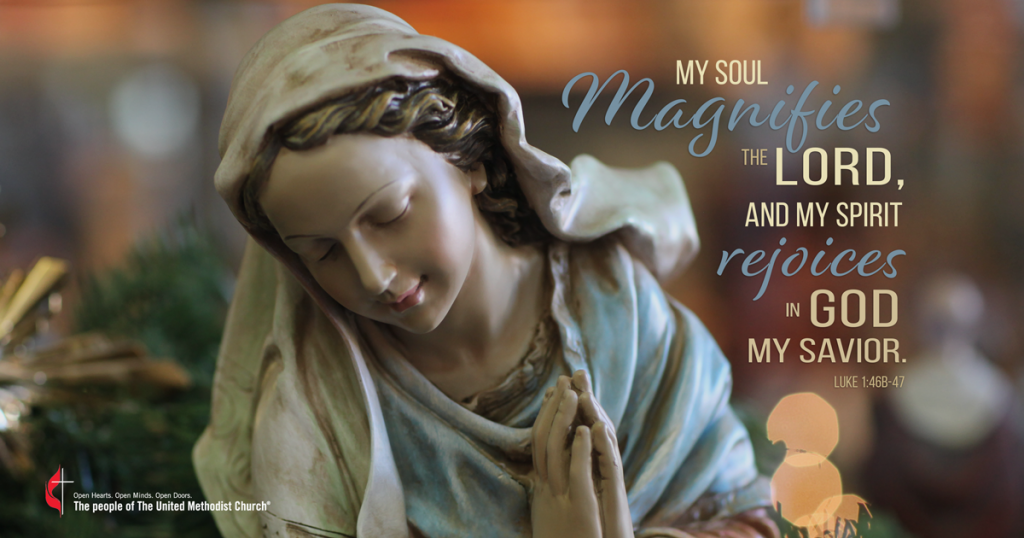
Today Pastor Choi talks about two lessons from Mary the mother of Jesus: humility and blessedness. True humility before God means courage to embrace God’s will and plan for the believers. As far as blessings go, we need to learn to look at blessings from God’s perspective not from that of the world.
Text: Luke 1:5-25
Today Pastor Choi talks about God’s time vs. Our time. He points out three lessons from the story of Zacharias and Elizabeth–the parents of John the Baptist. First, the delayed answers to our prayers may have nothing to do with us but have everything to do with God’s divine purpose and plan for our lives. Next, God’s time is different from ours. Thirdly, we must persevere in prayer without losing heart or faith in God.
Text: Revelation 21:1-4
Today Pastor Choi explains what is Heaven, who is going to be there and who’s not, what is going to be there and what’s not, what we are going to do in Heaven, and so forth. Jesus is the only way to Heaven (John 14:6), the eternal home of God and the saints in Christ.
Text: Psalm 24
Today’s sermon comes from John Parker, guest preacher.
Psalm 24 is called a royal Psalm because it talks about the return of the King of Glory. It begins with the creed that God is the creator of all things and everything belongs to Him. Since we belong to Him, God deserves our worship and can expect our obedience. But who is qualified to come into the presence of the King? Only those with clean hands and a pure heart. Thankfully we are washed clean by the blood of the Perfect Lamb of God. Today we understand Psalm 24 as a prophetic Psalm pointing to the the return of Jesus as the victorious Messiah. Because of His sacrifice we can now be with Him, worship Him, and give Him the glory He deserves. Praise be to God Almighty!
Texts: Psalm 12:6, 18:30
Today Pastor Choi expounds on the meaning of “the Word of God is tried/tested” in two ways: 1. It has been tested by God’s people for 3,500 years and proved strong, true, dependable, and relevant. 2. It also tests our hearts and refines our character.
Text: Luke 9:23-27
Today Pastor Choi talks about the meaning of discipleship in three ways: reality check, the nature of discipleship, and the marks of Christ’s disciple. He concludes his message with Christ’s own reminder: Not everyone who says to Me, ‘Lord, Lord,’ will enter the kingdom of heaven, but he who does the will of My Father who is in heaven will enter (Matthew 7:21, New American Standard Bible).
Text: Ephesians 6:4
Today Pastor Choi talks about God’s command for fathers: do not provoke your children to anger (Ephesians 6:4). Pointing out the reality in America, he exhorts both children and fathers to reconcile with each other not by feelings but by will. He recommends a two step reconciliation process: Be determined to forgive. Be proactive in Love.
Text: 2 Timothy 3:16-17
Summary: Pastor Choi gives three pieces of advice to young believers (confirmands) in Christ. If they practice his advice, they will lay out the foundation of their faith in Christ and harvest and enjoy the fruit thereof. 1. Take God’s Word seriously: Read God’s Word daily. 2. Keep the Sabbath holy: Worship the Lord weekly. 3. Do tithing: Give tithing to the Lord monthly. And, they will be secure and content in the Lord.
Text: Jeremiah 1:4-10
Today, Pastor Choi talks about the nature of prophecy in the following ways: who is a prophet, what is their role, do we still have prophets in the 21st century, can anyone be a prophet of God, and ways to tell true and false prophets.
Text: Ephesians 5:15-21
Today, Pastor Choi talks about the meaning of being filled with the Holy Spirit. He explains what it means to be filled with the Spirit, how we can be filled with the Spirit, the signs of the Spirit-filled life, and what keeps us from being filled with the Spirit.
Text: Exodus 20:1-17
Today Pastor Choi talks about Torah-God’s Law. He states that the spirit of Torah is the 10 Commandments. The spirit of the 10 Commandments is the love of God and the love of neighbors. He exhorts the people of God to keep obeying the 10 Commandments until Christ comes.
Text: Genesis 3:20, Matthew 15:21-28
Today Pastor Choi talks about three things we all owe to our mothers: life, nurturing, and prayers. He exhorts the mothers to pray fervently on behalf of their children for their salvation, protection, and deliverance.
Text: Matthew 5:1-12
Pastor Choi defines the biblical understanding of blessings: Blessing is anything, any event, or any person that brings us closer to God and vice versa. He exhorts God’s people to see blessings as God does in an eternal perspective such as the Beatitudes.
Texts: Genesis 1:28, Romans 8:19-22
Pastor Choi talks about Creation care. He points out that sin of the inhabitants of land causes the whole creation to groan and suffer. The creation waits eagerly for the children of God who would take good care of them as God would. By being faithful to God, merciful and forgiving to each other, we can be a true steward of God’s creation.
Text: 2 Timothy 3:16-17
Today’s sermon provides a brief overview of Bible’s history both on the Old and the New Testament (covenant). Pastor Choi exhorts God’s people to get into God’s Word by pointing out that the God of Bible still speaks to God’s people today through His written Word.
Text: Mark 11:1-11
Today Pastor Choi talks about the meaning of Palm Sunday: two thousand years ago another prophecy on Messiah was fulfilled in Jesus as He entered Jerusalem riding on a donkey. He showed the true quality of Messiah—humility. We also await His second coming as the Judge of the world.
Text: Ephesians 6:10-18
Today Pastor Choi concludes his sermon series on prayer: Prayer is a reclaim on our hearts, on our victory posts, and on our loved ones. He calls the saints to devote themselves to prayer.
Text: Matthew 11:28-30
Today, pastor Choi talks about prayer as a rest in God. He points out that both God and Jesus needed rest. How much more do we need rest? We can find rest in Jesus by two ways: first, coming to Him in prayer. Next, by taking His yoke and learn from Him.
Today’s text: Philippians 4:6-7
Today Pastor Choi continues his sermon series on prayer: Prayer Is a Request (an act of asking).
First of all, asking for God’s favor is a command, not a suggestion: Ask, and it will be given (Matthew 7:7). Next, we must practice with requests over and over again. Learn from mistakes and ask again. Ask, Learn, and Repeat. Finally, there are five ways to ask: a. Ask in Jesus’ name (John 14:14). b. Ask with faith (Mark 11:24). c. Ask without worries (Philippians 4:6). d. Ask with thanksgiving (Philippians 4:6). e. Ask with persistence (Luke 18:1).
Text: Matthew 14:22-33 (Jesus Walks on the Water)
Today Pastor Choi talks about another nature of prayer: it is God’s response to our heart-cry for help in times of need. Most of the time, we pray in silence or in a soft voice, yet, sometimes, we ought to cry aloud onto God for His deliverance (Jeremiah 33:3). Pastor Choi urges the parents of children who are under the bondage of addiction, sin, and death to keep crying out onto the Lord.
Text: Matthew 26:36-42
Today Pastor Choi talks about the basic nature of prayer: it is not a requirement as some of us believe. Rather, it is a privilege and constant communion with God in every moment. It is a relationship where we meet and talk with our loving Heavenly Father.
Today Pastor Choi talks about love as an investment: giving self on behalf of others. He points out two roadblocks to a successful marriage: unrealistic expectations and negligence on each other. He exhorts the audience to take initiative in investing themselves in Christ-like love for their loved ones.
Today, Pastor Choi explains three reasons why we can trust the Bible as truth: 1. It stands stronger than ever after three millennia of fires and persecutions. Only truth can last forever. 2. We can trust the Bible because of the integrity of authors and witnesses. 3. We trust in the Bible because it calls a spade a spade.
Text: 1 Corinthians 3:18-20
Today Pastor Choi talks about two types of wisdom: wisdom of the world and wisdom of God. These two clash in our lives and vie for our attention and loyalty. Which one would you choose? You cannot have the both. Listen to his sermon below.
Using Genesis 3:1-7, Pastor Choi expounds on the nature of temptation and considers ways to ward off temptations in life. The tempter: he is a deceiver; his motive is never for us, rather for his own gain; he is also a liar.
The tempted (the one who is tempted): beware of the attack that always comes upon the weakest link in your life.
Ways to ward off temptations: 1. The fear of the Lord 2. God’s Word in heart 3. Knowing your boundaries 4. Learn to be content.
In today’s sermon, Pastor Choi points out four things that pervert justice: they are partiality, bribes, corrupt witnesses, and the desire to please the crowd than the Lord. At the end of his message, he exhorts the people of God to live out justice day in day out where they are.
Today Pastor Choi designates 2018 to be the Year of the Bible encouraging all the members of congregation to get into God’s Word for the following three reasons: 1. God’s Word is indispensable for salvation. 2. It is indispensable for life’s journey. 3. It is also indispensable for sanctification.
Guest Preacher: John Parker
For those who thirst after God, He has promised an eternity beyond belief. Creation will be made new and perfect. There will be no more pain, no more sorrow, and no more death. We will be made pure and all things will be made new. In Revelation 21 the Apostle John records the appearance of the new heaven and the new earth and the New Jerusalem coming out of heaven. In this holy city, God will be with us and we will be His children. In 2018, let’s resolve to thirst after God.
At Christmas Eve service, after sharing his own story of celebrating Christmas, Pastor Choi invites the congregation to accept Christ.
Today Pastor Choi points out in his sermon the connection between Christmas and love. Christmas is about God’s love that sent God’s own Son to the cross to save humanity from their sins. Pastor Choi also connects the Christmas spirit with Jesus’ teaching on the great commandment: love God and love your neighbor (Matthew 22:34-40).
Manahawkin UMC offered a Quiet Christmas service for those who needed quiet peace of God during this Christmas season. Following is the recording of the service. May God touch your heart with Christ’s peace and grace.
Today Pastor Choi talks about faith in Jesus Christ. Expounding Hebrews 11:6, he points out the importance of believing that God is and that God rewards those who seek Him.
Pastor Choi talks about Christ the hope of the world in the following ways: 1. Christ is the hope of the world. There’s no other. 2. The same Christ is also the hope in our daily struggles. 3. The hope we need is found in God’s Word.
Christmas is fast approaching. Christmas is all about Christ’s birth. Behind the birth story, we see the love of God who sent His Son Jesus for the forgiveness of our sins. Pastor Choi explains three aspects of forgiveness: 1. Forgiveness is reciprocal. 2. Forgiveness is divine. 3. Forgiveness is about initiative.